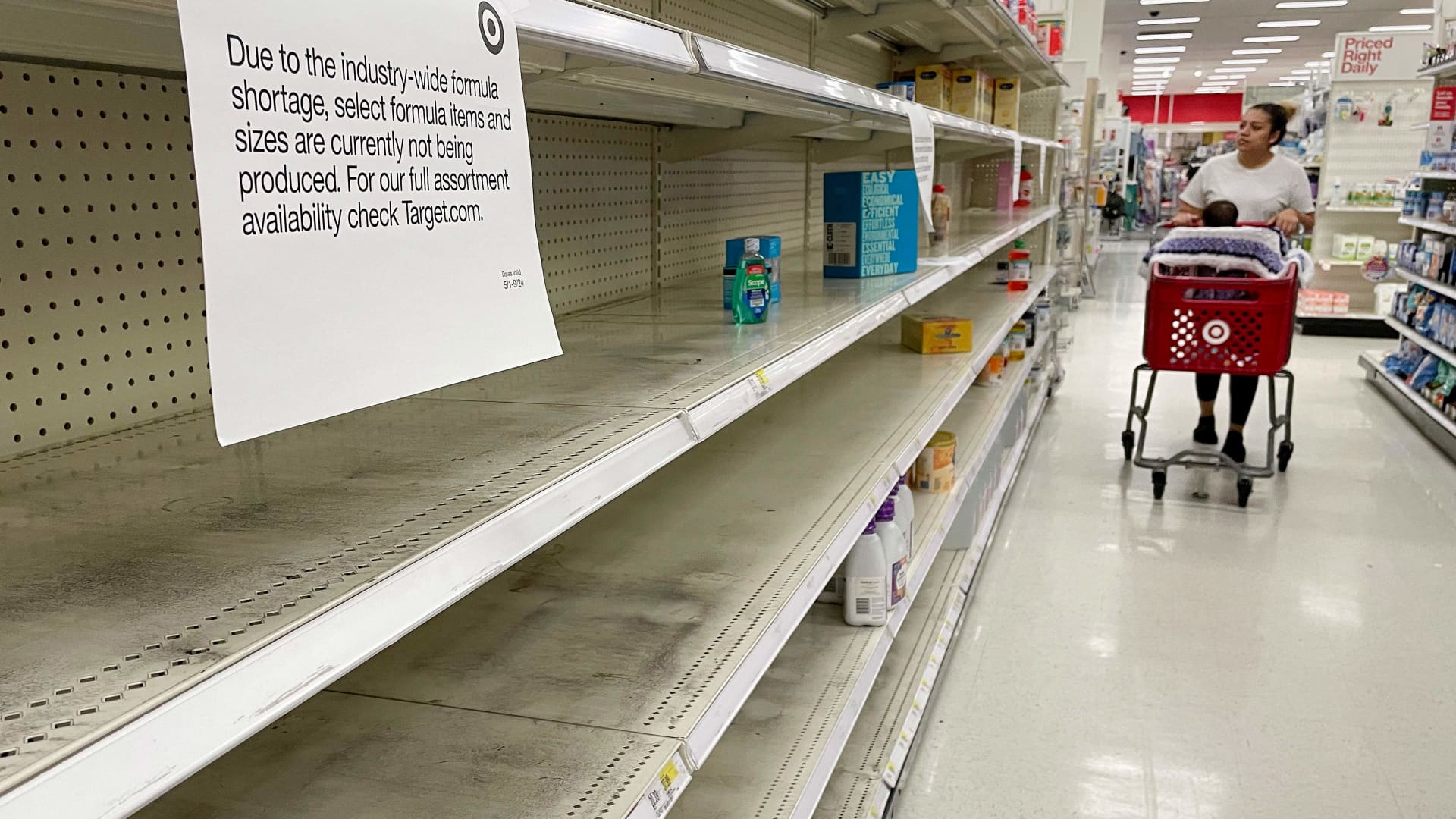
A woman shops for baby formula at Target in Annapolis, Maryland, on May 16, 2022, as a nationwide shortage of baby formula continues due to supply chain crunches tied to the coronavirus pandemic that have already strained the countrys formula stock, an issue that was further exacerbated by a major product recall in February.
Jim Watson | AFP | Getty Images
Abbott has reached an agreement with the Food and Drug Administration to reopen its manufacturing plant in Michigan to help ease a nationwide shortage of baby formula, the company announced on Monday.
Abbott said it can restart the Michigan plant within two weeks subject to FDA approval. However, it would take six to eight weeks from the start of production for formula to arrive on store shelves, according to the company. The agreement between Abbott and the FDA, called a consent decree, is subject to court approval.
The Biden administration is also taking steps to import baby formula from other countries, White House press secretary Karine Jean-Pierre told reporters Monday.
Mothers are struggling to find formula for their infants amid a nationwide shortage that has left shelves empty in many stores. More than 40% of baby formula was out of stock in the U.S. during the week ending May 8, according to Datasembly, a company that tracks retail data.
The supply shortage was triggered in part by the closure of Abbott Nutrition’s manufacturing plant in Michigan after four infants who consumed formula from the facility fell ill from bacterial infections, two of whom subsequently died. Abbott is the largest infant formula manufacturer in the U.S.
Inspections by the Food and Drug Administration found the presence of Cronobacter sakazakii, a bacteria that can cause blood infection, at the Sturgis, Mich. plant. Abbott internal records also showed that the company destroyed some of its product due to the presence of the bacteria at the plant, according to the FDA.
In February, Abbott issued a voluntary recall of its Similac PM 60/40, Similac, Alimentum and EleCare products made at the Michigan plant. Abbott said last week that no formula distributed to consumers from the Sturgis plant tested positive for the bacteria, and genetic sequencing of two samples from the sick infants did not match the Cronobacter strains found in the plant.
The FDA concluded its inspection in March. The Centers for Disease Control and Prevention has found no additional cases of infants infected with Cronobacter after consuming products from the Michigan facility.
This is a breaking news story. Please check back for updates.







